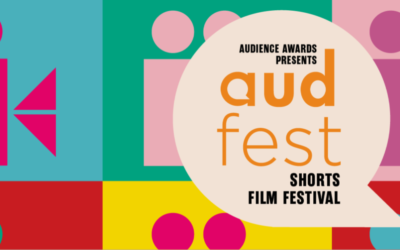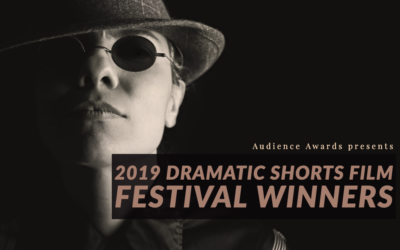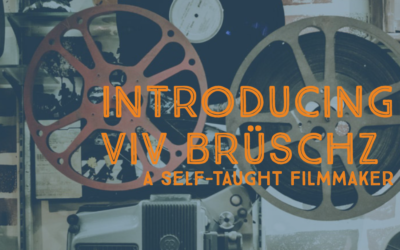 It’s really wonderful to stand in the back of the auditorium as people are leaving and to have all kinds of people from 70 year old lesbians to 20 year old gay men thank Russ and I for the experiences that they’ve had.
It’s really wonderful to stand in the back of the auditorium as people are leaving and to have all kinds of people from 70 year old lesbians to 20 year old gay men thank Russ and I for the experiences that they’ve had.
Portland has been enjoying QDoc, or the Queer Documentary Film Festival for seven years now. The festival features filmmakers from around the world and shows documentaries ranging from, “historical films, personal stories, artist biographies, experimental work and topical films dealing with current [LGTB] controversies.” I have spoken with one of the founders, David Weissman, to learn more about QDoc and its impact within Portland and the LGTB community.
Q: How did the festival begin?
A: Qdoc was founded in 2007 by myself and Russ Gage. We’re both former San Franciscans. Russ worked for many years at Frameline as the operations manager there and I’ve been a filmmaker for a very long time and I think I’m the only person that’s attended all 38 of the festivals that have happened in San Francisco. Russ had the idea and what I thought was a completely brilliant inspiration that was a festival with all LGTB documentaries. There are no others festivals like it in the U.S. There may be one now in Romania that just started. Really’ we’re a very unique festival. It’s a four day festival and we have 11 programs and it’s all curated. We don’t have open submissions. We bring filmmakers in and it’s just a really lively and exciting four days of documentaries in Portland.
Q: What were some of your favorite films from this year’s festival?
A: We get asked that prior to every festival because everyone wants to know which ones to see. What’s great about doing a short festival is that everything is so strong. I think some festivals program based on what they think will bring audiences in and we’re very dedicated to programing based on what we think will bring audience’s back. It’s very important for us that at every screening people leave having a better experience than they anticipated. So it’s really hard to pick favorites. We show such a wide range of films. We show historical films and biographical films and international films and contemporary films. They run the gamut of all the LGTB themes both current and historical. The festival itself becomes a rich tapestry of a lot of very substantial and interesting stuff and a lot of very fun films as well.
Q: What makes QDoc unique and exciting?
A: That it’s the only festival in the United States that is completely dedicated to LGTB documentaries. So the audiences come with a different set of expectations than a more widely themed festival. People come really wanting to engage with issues of substance. Whether the film is fun and entertaining or whether it’s a film that is more challenging politically for instance. They’re still all very substantial and meaningful films. So our audience comes with the expectation of a really deep connection to what we’re showing.
Q: Are there discussions that follow the screenings?
A: Yeah we try to bring as many filmmakers as we can to the festivals. All of the filmmakers are invited unless they’re from a place that’s so prohibitively expensive to bring them in. We’ve even had filmmakers come al the way from Rome. We’ve had a filmmaker come from Australia. It is a top priority for us to have those filmmakers there, specifically for the reason of being able to have those conversations at the end of the screening.
Q: What films or festivals inspired you to get involved with the industry?
A: I’ve been to Frameline [in San Francisco] and what preceded Frameline every year since 1977 and for me that’s the most exciting film festival in the world bar none. It still has a kind of audience energy and community electricity that is unparalleled anywhere in the world. And to see films in the Castro Theater with an audience of 1400 other queer people is such a powerful and unforgettable experience. Both Russ and I felt like we wanted to bring as much of that experience to Portland as we could.
Q: How has the festival helped create awareness surrounding important issues within the LGTB community?
A: Portland is different from San Francisco in that it doesn’t have a visible queer neighborhood. On some levels that’s great but on some levels we’ve sort of become so assimilated that we’ve become invisible. And I think when you concentrate this kind of filmmaking into one location for four days it brings a focus onto us as a community that’s not so easy to access in Portland under other circumstances.
Q: Is there something that you want our audience specifically to know about QDoc?
A: For Filmmakers they should be aware that we show primarily feature films and that we don’t have open submissions. So if they’re interested in participating they should let us an email through our website that tells us what their film is and we’ll get back to them if we want to see a screener. Also they should keep us posted if they have films in progress because we like to track films that are still in the works.
Q: What is the most fulfilling aspect surrounding your work at QDoc?
A: Audiences love the films and that’s really why we’ve created it. It’s really wonderful to stand in the back of the auditorium as people are leaving and to have all kinds of people from 70-year-old lesbians to 20 year old gay men thank Russ and I for the experiences that they’ve had. That’s a wonderful feeling.
The Audience Awards’ LGTBQ film competition starts in just two weeks. No fret to filmmakers, submissions are open until July 31. To submit your films go here.





